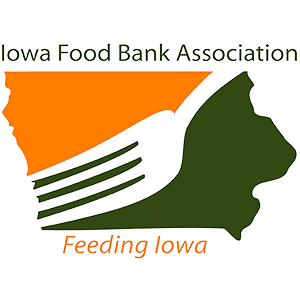Food Bank for the Heartland and Food Bank of Lincoln are urging Governor Pillen to address rising childhood food insecurity rates. Learn more about a program that could help Nebraska families, and how you can make your voice heard. View the article on the Nebraska Examiner’s website here, or, read the op-ed in its entirety below.
The numbers are clear. According to the U.S. Department of Agriculture, the prevalence of food insecurity in Nebraska has increased over the past five years, from 10.8% of households in 2017 to 12.1% of households in 2022. Today in our state, an estimated 13.5% of children experience food insecurity. Nebraska is hungrier than ever — and it’s severely impacting the health of our children.
The lack of consistent access to nutritious food is having a detrimental impact on kids’ potential to thrive. In addition to causing social and behavioral problems, there is a strong correlation between hunger and chronic diseases such as high blood pressure, heart disease and diabetes — leading to long-term effects on a child’s mental, emotional and physical health.
Here’s the good news: A new program poised to launch nationwide could directly address the growing problem of childhood hunger in our state. Nebraska has an unprecedented opportunity to dramatically reduce child food insecurity rates and improve diet quality through Summer Electronic Benefit Transfer (S-EBT) — a program providing grocery buying benefits to low-income families with school-aged children during the summer months.
Modeled after pilot projects and a nationwide pandemic-era initiative that has now ended, Congress authorized the more permanent summer program via the Consolidated Appropriations Act of 2023. It will offer an electronic benefit transfer (EBT) card to children whose household income makes them eligible for free and reduced school lunches during the school year. Families would receive $40 per eligible child each month ($120 total) through pre-loaded EBT cards that can be used to purchase groceries at authorized local retail stores, allowing families to buy the food that fits their dietary restrictions and nutritional needs.
S-EBT has the potential to support approximately 150,000 children, delivering an estimated $18 million in benefits to Nebraska families next summer, with administrative costs of approximately $300,000 annually. Nebraska has until Jan. 1 to opt into the new program to begin distributing benefits in the summer of 2024, the first year the program is available. The Nebraska Department of Health and Human Services is reviewing information and “awaiting the interim final rule from the Food and Nutrition Services of Nebraska (FNS) expected to be issued by the end of 2023.”
Gov. Jim Pillen’s administration has stated that protecting Nebraska children is its top priority. This program is the perfect opportunity to showcase that commitment. Area food banks — including Food Bank for the Heartland and Food Bank of Lincoln — continue to grapple with the ongoing demand for food assistance. Both food banks are projected to supply food to more than 2.5 million duplicated individuals this fiscal year through various anti-hunger programs. That number has nearly tripled since 2018. The rising need for food assistance, combined with elevated food and transportation costs, and a decrease in emergency food from the federal government, has created a hunger crisis in Nebraska that local food banks can no longer sustain.
We have issued a joint statement directed to the governor:
“We are urging Governor Pillen to notify FNS of our state’s interest in adopting S-EBT to ensure Nebraska children have the vital nourishment they need, as hunger increases during the summer months — especially for students. Unfortunately, it’s a time when monetary donations to our food banks decrease, as families face increased economic hardships with kids home on summer break. This program is imperative to the well-being of our children. If the state chooses not to participate, the decision will have a ripple effect on food banks, pantry partners, and families in need for years to come.”
The time to act is now: Nebraska has until Jan. 1 to express interest in the program for the summer of 2024. With a state investment of around $300,000 in administrative costs, Nebraska would gain an estimated $18 million in federal dollars to provide for approximately 150,000 Nebraska children caught in the vicious cycle of food insecurity. We are urgently asking Gov. Pillen and his administration to honor this priority and protect Nebraska’s children by opting into S-EBT.






